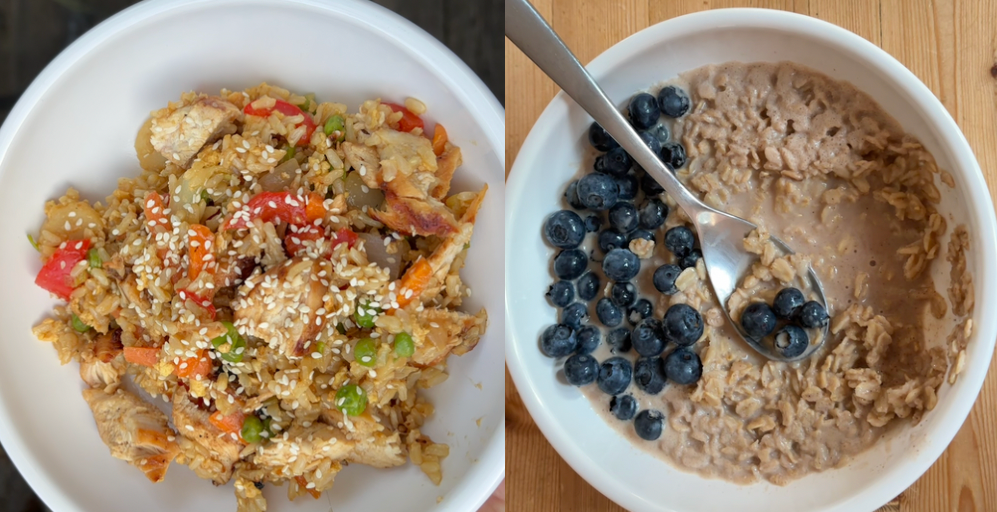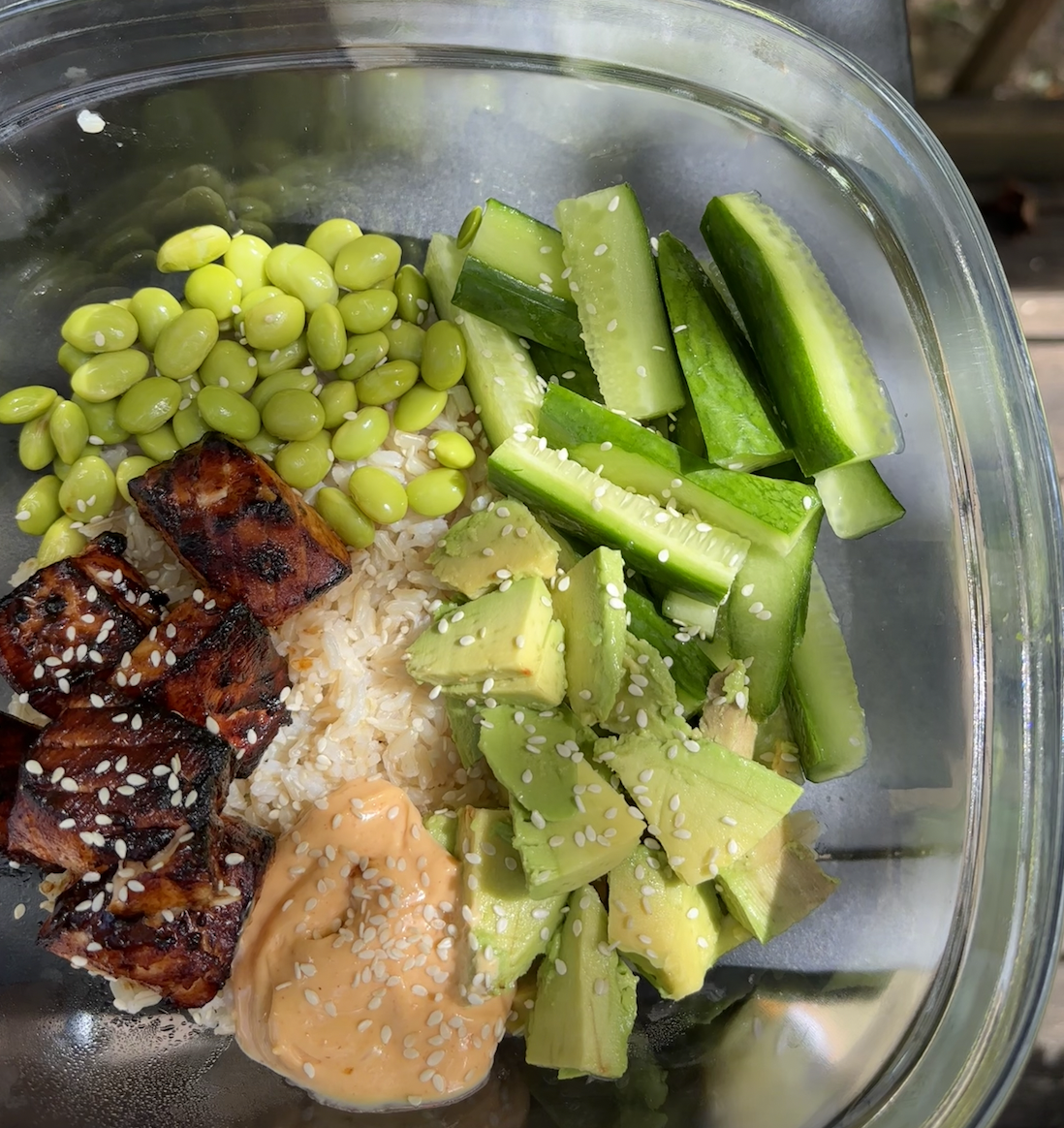Performance Starts on Your Plate: A Conversation with Sports Dietitian Kelly Grebner
In elite sport, every detail counts— especially the ones you can control. Sleep, training, mindset, and yes, the fuel that powers it all: nutrition.
Yet for many athletes, understanding what to eat, when to eat, and how nutrition truly impacts performance can feel overwhelming or even overlooked. That’s why we chatted with dietitian Kelly Grebner to give you tangible facts that are easy to digest.
Kelly is a Registered Dietitian— she earned her Bachelor’s in Health Science from DePaul University and Master’s in Public Health from UNC Chapel Hill. She has worked with major professional sports teams, including Orlando City Soccer, Orlando Pride Soccer, and the Orlando Valkyries Volleyball. She is a former collegiate athlete and professional basketball player.
This post isn’t about complex macros or trendy diets. It’s about making nutrition practical—easy to understand and applicable to every day life. Whether you’re a young player looking to gain an edge, or a parent trying to support your athlete, the insights here are gold.
Let’s get into it.
Can you start us off with a Kindergarten level of athlete fuel? Which food groups are needed, when, and why?
KG: Absolutely! I love this question because even elite athletes benefit from going back to the basics. I like to use a really simple breakdown—
Carbs = fuel
Protein = repair
Fat = protection
Carbs are your body’s favorite source of energy—think rice, pasta, fruit, oats. These help you train hard and recover faster.
Protein—chicken, eggs, Greek yogurt, salmon—is all about building and repairing muscle.
Fats like avocado, nuts, olive oil help protect your brain, hormones, and joints and keep you satisfied.
The magic happens when you combine all three. Before training? Emphasize carbs. After training? Bring in protein + carbs. And don’t be afraid of fat—it belongs on your plate too, just more so with meals that aren’t right before a workout.
With your experience, what is a typical mistakes athletes often make when it comes to everyday fueling?
KG: One big mistake I see all the time? Not eating enough during the day—especially in the morning or between classes or sessions. A lot of athletes will kind of “graze” or skip meals, and then by dinner, they’re starving and try to make up for it all at once. That can leave you feeling sluggish, under-recovered, and even struggling to gain strength or muscle.
If an athlete only changes one thing about their nutrition, where should they start? Do you have a habit, tip or trick you recommend?
KG: Start by adding carbs and protein within 30–60 minutes after practice. Even something as simple as chocolate milk, a protein bar and banana, or a turkey sandwich can make a huge difference in recovery and how you feel the next day. That one habit tends to ripple into others—better energy, better strength gains, even better sleep.
Do you have a go-to post-training meal or snack you recommend for busy athletes?
KG: Yes! I love easy options! Some of my go-to recommendations:
A PBJ
A Greek yogurt parfait with granola and berries
Or simply chocolate milk and a banana if that’s all you have time for.
The key is pairing carbs + protein, and doing it soon after training—even if it’s just a snack until you can get a full meal in.
Can you break down what a solid pre-training meal looks like—and why each part matters?
KG: Totally! A solid pre-training meal should give you energy without weighing you down, and the star of the show is carbs. Here’s a simple formula:
Carbs = main energy (like rice, pasta, toast, fruit, oatmeal)
A little protein = staying power (like eggs, Greek yogurt, deli meat)
Minimal fat and fiber = so your stomach doesn’t feel heavy
For example: A bowl of oatmeal with banana and a bit of peanut butter, or a turkey sandwich with a side of fruit. You want to eat this about 2–3 hours before training so your body has time to digest and fuel up.
How important is meal timing, and how can athletes adjust it around early morning or late-night sessions?
KG: Meal timing is super important, especially when you’re training hard. For early sessions, even something small before you go—like half a granola bar, applesauce, or a banana—can help you show up with more energy. Then follow it up with a full breakfast post-training.
For late-night sessions, the key is to not skip dinner just because it’s late. A lighter, balanced meal after training still helps your body recover overnight. Try something like a rice bowl with chicken and veggies or a smoothie with protein, fruit, and oats.
Before you became a nutritionist you were an athlete yourself. What is one habit in terms of nutrition that you used consistently when you were playing?
KG: I was big on packing snacks—and honestly, I still am! I always had something in my bag: trail mix, bars, fruit, beef sticks. It sounds simple, but having something available helped me avoid long gaps without fuel, especially during tournaments or travel. It kept my energy up and my mood way better too, you don't want to be around me when I get hangry!
Can you leave us with a podcast, book, habit, or anything really that you would recommend to people wanting to learn about nutrition?
KG: A couple podcasts I love: High School Athlete Nutrition by Stephanie Militano and Female Athlete Nutrition by Lindsay Elizabeth Cortes, especially for younger athletes or anyone wanting a performance-focused but realistic take. For habits, just start building a performance plate at every meal: carbs for fuel, protein for recovery, color from fruits and veggies, and a little healthy fat. You don’t need to overcomplicate it—just keep stacking those small wins. If you are a reader, Fuel Your Body by Angie Asche is a great resource that has both education + delicious recipes!
If you are looking to take your performance to the next level, one of the most important details is nutrition. And this is a choice you can make every single day. How well do you think you fuel? What could you do better? How is it impacting your performance?
Take this incredible information from Kelly and add it to your toolkit — it will be so powerful in elevating everything about your game!
And if you are looking for a more personalized plan and to work directly with Kelly (I highly recommend— she is personable, supportive and empathetic) then head to her website—Fuel To Win—and set up an initial call with her.
Thank you Kelly for taking your time to share your wisdom and expertise with us all!
Talia


